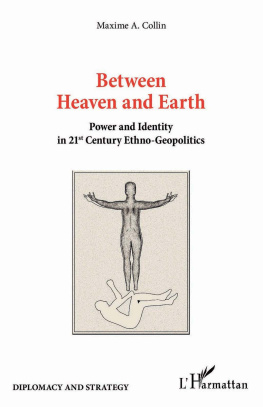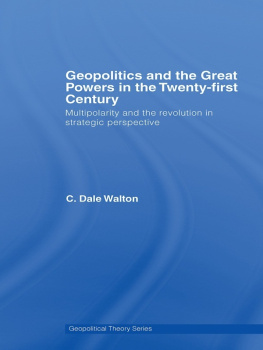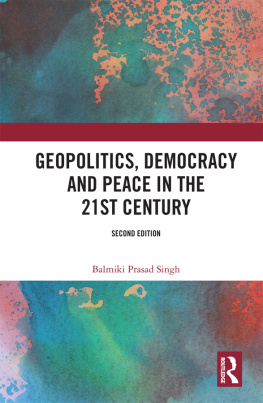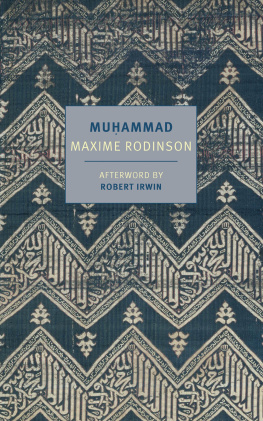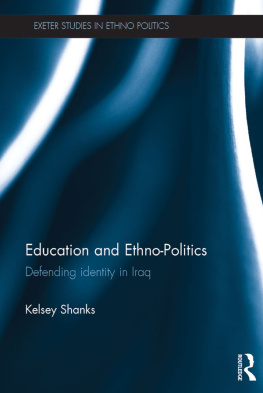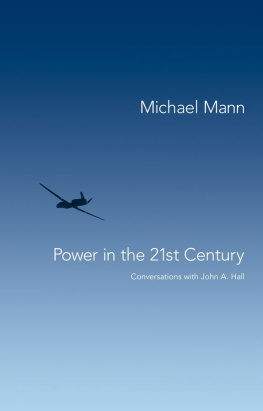4e de couverture
Diplomacy and Strategy
English Series
Directors: Fouad Nohra and Michael J. Strauss
Diplomacy and Strategy is a collection initiated by the academic directorate of the Centre dEtudes Diplomatiques et Stratgiques to promote the outstanding scientific work presented by Ph. D. graduates, professors and researchers. The scope of subjects covered is as wide as international relations itself, encompassing disciplines such as political science, economic science, international law and sociology.
OTHER TITLES
DIALLO Fatoumata Sira, State Policing in Sub-Saharan Africa , 2019.
ZARE Kambiz, The Gulf Cooperation Council Project. 1981-2016. The elusive potential for economic gain through regional integration , 2018.
ZERMOUNI Hakim, Smart Power in Barack Obamas Foreign Policy. A Systemic Approach to Diplomacy with the Gulf Cooperation Council , 2016.
CARTA Gianni, Berlusconi and the Power of Television: 2008-11 , 2016.
SADIA Antoine , Democratic Governance and Foreign Aid in Sub-Saharan Africa, 2013.
DOUHAN Alena F., Regional Mechanisms of Collective Security. The New Face of Chapter VIII of the UN Charter?, 2013.
SOLVIT Samuel, Dimensions of War. Understanding War as a Complex Adaptive System , 2012.
DUQUESNE Isabelle, Nepal, Zone of Peace. A Revised Concept for the Constitution , 2011.
STRAUSS Michael J., The Viability of Territorial Leases in Resolving International Sovereignty Disputes, 2010.
Titre
Maxime A. Collin
Between Heaven and Earth
Power and Identity
in 21 st Century Ethno-Geopolitics
Copyright
LHarmattan, 2021
5-7, rue de lcole-Polytechnique; 75005 Paris
http://www.editions-harmattan.fr/
EAN Epub: 978-2-336-93216-3
Ddicace
To my parents, Elisabeth and Thierry.
To rebirth.
PREFACE
The initial research leading to this thesis began in 2011, when I was completing my undergrad degree in Waseda University, Tokyo. My first field of research pertained to Japanese revolutionary history and institutional reform. Specifically, I worked on the rhetoric used by anti-Bakufu forces to build their strength and massively recruit militias, and hypothesized that notions ingrained in their discourses represented the first example of Japans particular brew of democracy and corporatist behavior. In a society where informal castes defined the life of all, these discourses were the very first to aver that each man, be him of low birth or noble blood, was entitled to an opinion and basic rights. They were, as it turned out, little more than jingoistic and populist drivel: after the civil war, few of the promises made ever came to fruition, and caste-based elitism was replaced by capital-based elitism.
This led me to believe that Japans modern policies may be explained by two different factors. The first is a natural proclivity to reaction, rather than action. There is, deeply embedded in Japanese identity, a thirst for balance which, in times of crisis, is realized as a surprising adaptability and capacity for change. This much is, at least, historically irrefutable; the turmoil-filled story of Japan, and its numerous transformations, speak for themselves; yet to find the reasons behind this proclivity goes further in ethnological studies than I ever did. The second factor is the particular way of reaching conclusions, as a group. Japan has been extensively studied for its top-down model of decision-taking: identification to a group means adherence to politics decided at the top, which are still, by way of convention, put to the approval of the entire group. This means that this identification is proven by actively acquiescing to proposed plans and ideas, which then take on the legitimacy of the entire community. This allows Japan to enact reforms, actions, policies which fit very specific agendas, while benefiting from a broad support. Discussion, negotiation are circumscribed to the wider questions, while most others escape public notice and debate. Over time, these oversights pop as bubbles: whenever national or international circumstances bring them back to the surface. One of the more obvious examples of the 2010s was the matter of American bases in Hokkaido, decried by a long-inaudible Left and made into a strong element of the August 2009 elections.
I was left wondering on the nature, and genuineness, of elements thought self-evident in most contemporary studies of Asian states: a gap seemed to appear between the nature of a national entity, and that of its populations identity. To equal every states behavior with the preferences of its people seemed reductive, as it did not mention how those preferences came to be. Any comprehension of international kinetics could then be but superficial, as the inner workings of national preferences remained out of sight.
As a young professional, I was led to expand my research, and my work, on the Northern Asian region. An analyst of the geopolitical balance in Asia, I was especially interested in the things which drove states to their objectives, which I believed to be linked directly to their deep nature. Organically, states are bound to pursue goals, and impose forms of order deeply embedded in their identity: some obvious, others not so much. This thesis is an attempt to draw a line between the core identities of nations, and the way they assert their preferences outside of their borders.
In order words, this is a journey from our inner being, to the strategies of power.
INTRODUCTION
In an increasingly scattered global game, linear hermeneutics, which once offered valuable frameworks, have lost much of their edge. Particular, event-based analyses have waned, replaced with structural studies attempting to grasp what may no longer be gleaned from simple observation.
An ethno-geopolitical study
This thesis attempts to bridge a glaring gap between two ways of questioning the notion of power: one essentially ethnological, and the other based on a practical approach of international relations studies. The latter, through its geographical focus and preference for empiricism over theory, qualifies as geopolitics. It was always intended that the results of this research would serve as a foundation for further academic exploration, as well as be of direct use to professionals of the field, observers of international dynamics on a quest to understand, if just a little better, the tangled threads of international politics in the 21 st century.
The intent behind this work is, then, to provide enough angles and perspectives to enable a degree of unentanglement in these matters. While a strictly observatory attitude, typical of geopolitics, might stop at depicting, in the most accurate fashion possible, the unfolding and logics of events, the intent of this work is to, whenever possible, interrogate about the why. To deconstruct, one level at a time, the imbricated blocks of national behaviors, and build hypotheses not only as to their current actions, but also future ones. Through the lens of new, multilevel approaches, one might recognize novel linearities, logics and influences which may float, unseen, just below the surface. This idea justifies the very particular approach of this thesis, which recuses traditional academic borders and limitations, and favors a free-flowing reasoning. While it would seem difficult to exhaust all avenues of study permitted by this method, I made a choice to explore traditionally interconnected fields: history, sociology, ethnology, philosophy All of them may be put in the service of the study of international relations and geopolitics. Any area of uncertainty may, and should be, explored; unsatisfying answers should be broken down: hopefully, this work may open the way for further such explorations.



